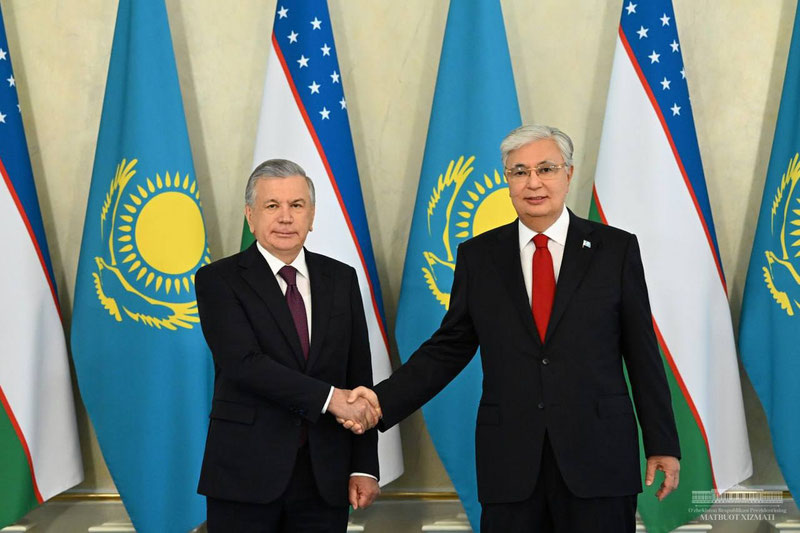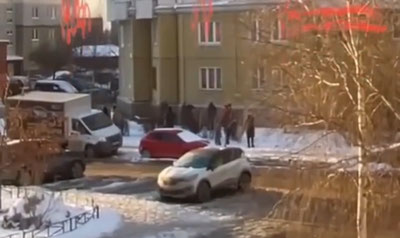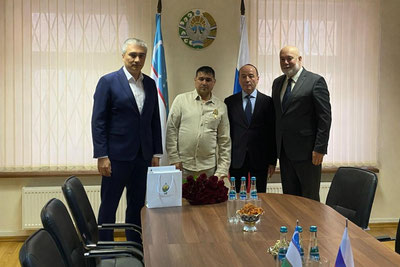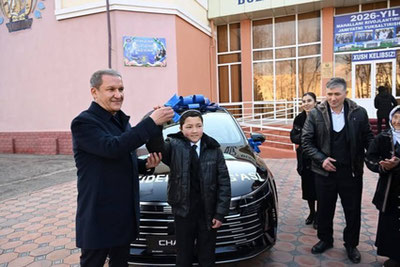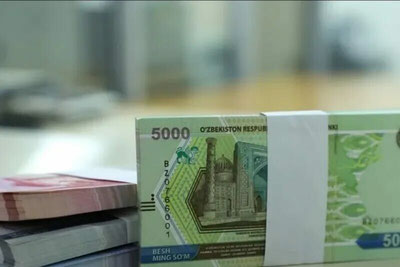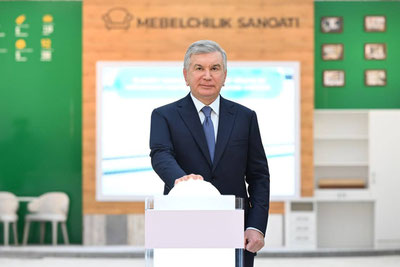In the Oqo’rda residence, a narrow-circle meeting took place between the President of the Republic of Uzbekistan, Shavkat Mirziyoyev, and the President of the Republic of Kazakhstan, Kassym-Jomart Tokayev. The President's press service reported this.
Current issues of multifaceted cooperation between Uzbekistan and Kazakhstan were reviewed.
At the beginning of the conversation, the leader of our state expressed gratitude for the warm welcome and noted that this state visit is of historical importance, aimed at elevating the strategic partnership and alliance relations to a qualitatively new level.
 This is also evidenced by the holding of the first session of the Supreme Interstate Council.
This is also evidenced by the holding of the first session of the Supreme Interstate Council.
The eve of the visit saw the successful organization of an Intergovernmental Commission meeting, a business forum, and several cultural events. A strategic partnership and alliance program up to the year 2034 has been prepared, and a council under the leadership of the heads of external policy agencies is being established.
In recent years, the volume of trade has doubled, the number of joint ventures has increased fivefold, freight volume is growing, and major cooperation projects are being realized.
It was noted that it is necessary to continue to support each other within the international and regional platforms, including the United Nations Organization, the World Trade Organization, leaders of the region's consultation meetings, and "Central Asia plus" formats among the parliaments, governments, foreign policy, and sectoral agencies.
 The necessity of developing close cooperation in the field of youth policy and shaping the information space was emphasized. It was agreed to prepare a comprehensive cooperation program in this direction.
The necessity of developing close cooperation in the field of youth policy and shaping the information space was emphasized. It was agreed to prepare a comprehensive cooperation program in this direction.
The creation of an Interparliamentary Forum with the participation of the chambers of the two countries’ parliaments was supported.
Special attention was paid to further increasing the volume of trade, notably by shaping mutual markets and replacing imports from third countries.
In this connection, governments were tasked with adopting a separate program to increase the volume of trade to 10 billion dollars by the end of the month.
With the aim of developing industrial cooperation, a portfolio of new agreements and contracts worth 7 billion dollars was developed prior to the current summit.
 Among them are projects in the fields of energy, transport and logistics, metallurgy, textiles, agriculture, and construction, as well as between regions.
Among them are projects in the fields of energy, transport and logistics, metallurgy, textiles, agriculture, and construction, as well as between regions.
The acceleration of the construction of the International Industrial Cooperation Center in the Syrdarya region and its provisions for housing companies were agreed upon.
The issue of establishing a Joint Investment Fund to financially support major projects will be explored.
The discussion included creating favorable conditions for transit freight, building joint logistics complexes, and developing automotive and rail routes between the two countries.
Priority was given to the speedy implementation of strategic regional projects, including the construction of the Kambarata HPP-1.
The presidents emphasized the importance of further expanding interregional cooperation. It was agreed to transform the Regions Forum into a Council of Regions Leaders and to hold its first meeting this autumn in Samarkand.
The heads of state exchanged views on regional and international issues of mutual interest.
